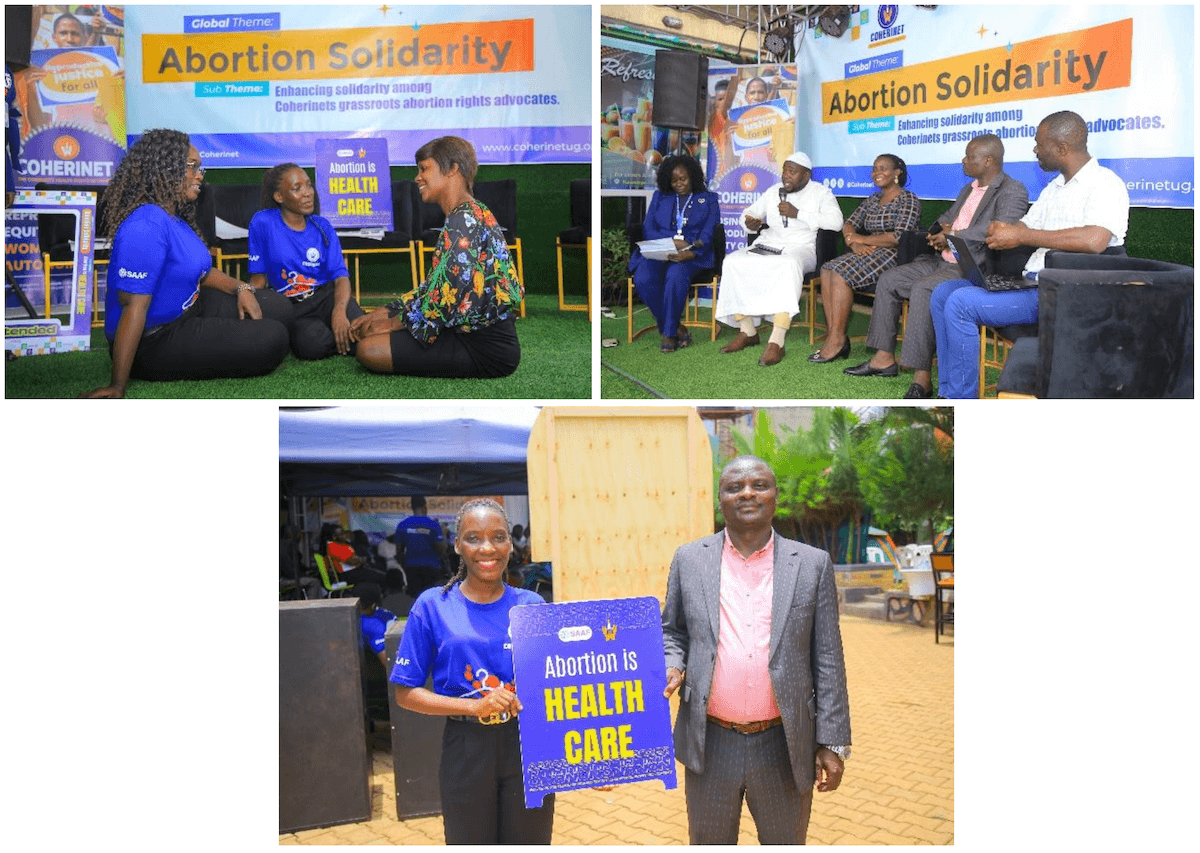
28 September 2024
Unsafe abortion remains a major public health concern at the grassroot community level despite the approaches being utilized to mitigate and reduce the negative consequences that come along with it, especially among the vulnerable and marginalized adolescents, young and adult women at the community/grassroots levels in Uganda. Take note that abortion is still highly restricted in Uganda.
Due to stigma stemming from beliefs and norms, consequences of unsafe abortions and lack of easy access to stigma free safe abortion care options among vulnerable and marginalized adolescents, both young and adult women from grassroots communities are increasingly calling for urgent redress.
Building from the achievements of the community interventions by our NGO, COHERINET, geared towards ensuring that abortion is accepted as a healthcare issue and a right, we brought together 50 community-based gatekeepers who included religious leaders, cultural leaders, law enforcement officers, healthcare providers, unsafe abortion survivors and general community members on 28 September, International Safe Abortion Day, to deliberate jointly on how to demand that the government decriminalize abortion — using a bottom-up approach, the need for easier accessibility, availability of stigma-free comprehensive abortion care services, especially for vulnerable and marginalized adolescents, young and adult women from the grassroots level in Uganda, to end abortion stigma and discrimination against those who provide abortion care and those who choose to have an abortion — in solidarity.
We heard during the deliberations from Mrs Nuwaibine Lillian Luyima, a medical practitioner and SRHR advocate, who emphasized that “it is important for adolescents, young and adult women seeking for comprehensive abortion care services to go to health facilities which are properly equipped with skilled staff so that there will be no unnecessary complications that may arise. She further requested the attendees to understand the urgent need for the availability of services at the community level to attend to any negative consequences from unsafe abortions among vulnerable and marginalized groups.
The Cultural Leader and Minister for Health from Buganda Kingdom advised the attendees that “it is important to join forces to guide parents and institutions to provide sex education sessions with boys — since they are the ones who impregnate the girls. He further showed his disappointment that most community programs are aimed only at girl children, neglecting the boy children.
The Assistant Superintendent of Police from Kawempe police station, Mr Asimwe Muteera, highlighted that: “There is a need for joint efforts to address imbalances in the abortion law that urgently require amendment. He stressed that it is on the stakeholders to come together and push for this; otherwise the duty of the police is to enforce the law as it is written in the laws of the Republic of Uganda.
We also noted from Kampala District biostatistician Mr Rogers Wandera, who is based in Kawempe division, that 56% of failed teenage pregnancies in Kampala metropolitan area are registered as incomplete abortions while there are 1,200 unsafe abortions registered at different health facilities in Kawempe division.
Sheikh Golooba Mansoor and survivors of unsafe abortion shared their experiences too. The attendees agreed that there is great need to carry out more community-based abortion stigma reduction focused and awareness sessions, empowerment, protection and support of abortion care providers and survivors of unsafe abortion to flourish in freedom in their communities, jointly advocate for better abortion laws and policies using the bottom-up approach, call for compassion and stigma reduction approaches at individual, community and institutional levels. The religious leaders shared their reflections on abortion urging their communities to embrace compassion with recognition of women’s reproductive rights.
The session ended with a joint call to all the different stakeholders in Uganda to join hands and stand together in solidarity, in support of abortion rights and women’s bodily autonomy.
COHERINET also published a 4-minute YouTube video called International Safe Abortion Day Commemoration 2024, which presents an exchange of views between the main community leaders at their event, discussing how to move forward.



